The novel Tender is the Flesh imagines a world where carnivores have turned to cannibalism. It’s the latest artwork to fly the flag for plant-based diets, writes Elizabeth Sulis Kim.
Imagine a world where a virus rendered other animals inedible. Then, with people still craving the taste of meat, human cannibalism became normalised. This is the dystopian world in which Argentinian author Agustina Bazterrica’s new novel Tender is the Flesh takes place.
More like this
The novel has been described as “hideous”, “disturbing” and “depraved”, shocking readers with its gruesome descriptions of the meat production line. It centres on Marco, who is employed in a slaughterhouse, “only no one calls them that,” as he points out. He works there, helping turn humans into food, to pay for his father’s medical treatment. He recalls the mass hysteria during the animal pandemic – the articles which confirmed there wasn’t yet a cure. He is haunted by traumatic memories of “the groups in yellow protective suits that scoured the neighbourhoods at night, killing and burning every animal that crossed their paths”. This is a world where animals are a rarity – and where humans are exploited like animals instead, from being tested on without anaesthetic in laboratories to being hunted and killed for sport.
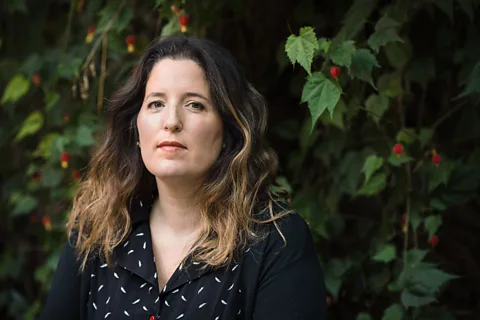 Denise Giovanelli
Denise GiovanelliIt is a provocative premise, and yet having grown up as a vegetarian in a carnivorous world, I found Bazterrica’s dystopian world utterly horrifying, but not quite as shocking as some might. After all, the way in which her imagined society blinds itself to human suffering reflects the way ours can be blind to the realities of animal killing. There’s the same normalisation of eating flesh; the same euphemisms around what is being consumed (to the consumer, they’re always sausages and burgers, not chunks of dead pig and cow); the same exploiting of each other, whatever the species involved.
In another respect, the novel’s virus-related premise may be eerily prescient to readers during the current coronavirus pandemic. Covid-19 can’t be contracted from eating meat, though there has been speculation that the virus originated at a ‘wet market’ in the Chinese city of Wuhan, which sold animals, both dead and alive, making it a zoonotic disease: one which jumps from animals to humans. The Centre for Diseases Control and Prevention warns that “three out of every four new or emerging infectious diseases in people come from animals”, and intensive animal farming has been linked to increased pandemic risk. One theory about the origins of the Spanish flu pandemic has suggested it came from a US pig farm, while BSE was caused by farmers in the UK feeding cattle dead livestock.
A food revolution
At a time when veganism is booming, transitioning from being a radical lifestyle choice to one accepted, even embraced by the mainstream, art may have a significant role in changing cultural attitudes to what we choose to eat long-term. Bazterrica herself stopped eating meat in 2014 after watching Earthlings, a 2005 documentary which shows the various ways humans exploit other animals, from the slaughter of livestock for food to the euthanasia of household pets.
“Years later, I was walking through a butcher’s shop in Buenos Aires when I had a revelation. I saw the corpses. I thought, here in Argentina we eat cows and pigs and chickens but in India, they don’t eat the cow because it’s sacred. In China, once a year they have a festival where they kill dogs and eat them. So I thought: ‘the meat that we eat is cultural – we could eat each other.’”
What’s more, even if we humans are not literally eating each other, Bazterrica suggests, we’re devouring one another every day in a capitalist system; those with power exploit those less powerful. All forms of exploitation are interconnected in Tender is the Flesh. As long as we see some beings as ‘other’, we will exploit them. And we will fudge the issue with excuses and euphemisms – or merely silence.
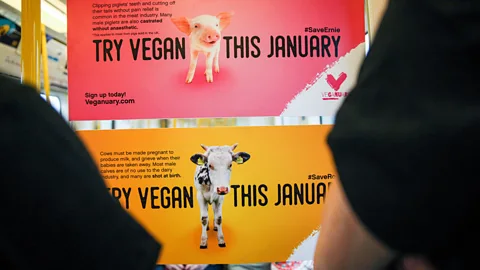 Alamy
AlamySo could Bazterrica’s novel have a real effect in converting its readers to veganism or vegetarianism? People certainly tell her that it has put them off meat for life. “But I never wanted it to be a moral book,” emphasises the author. “The books that really impact me are the books that make me question things, not the ones that tell me what to do. I think art and literature take the world and give it back with another purpose and another perspective.”
‘The mind’s flight simulator’
This tallies with research led by the Canadian cognitive psychologist Keith Oatley, who has called fiction ‘the mind’s flight simulator’. The research, published in 2008 looked at how fiction can influence us, beyond providing entertainment. “I don’t think works of art can make anyone do anything,” Oatley tells me, “that’s propaganda. What art enables people to do is think about things in ways they hadn’t thought about them before.”
Oatley’s research found that reading fiction often increases the reader’s empathy, and enables them to understand others better. “Reading artistic literature enables people to change within themselves, but in their own way, not by means of persuasion. What happens is you engage yourself in a story and you can think to yourself, ‘now what would I do in this circumstance?’” What we then take away from what we read or experience varies. A similar process can be seen in people watching films, television series, reading journalism and playing video games.
Bazterrica never set out to write a dystopian novel. “I just wanted to write the best novel I could write. When I’m writing I don’t think about genre.” The dystopian aspect of Tender is the Flesh came about naturally, through telling a story, but it’s perhaps the genre most capable of changing readers’ perspectives on the world. Dystopian novels have power because they are often so relatable: they amplify what is already happening within society. The dystopian worlds in The Handmaid’s Tale and Fahrenheit 451 are so frightening, for example, because, for all their horrors, they also seem familiar enough that we end up drawing comparisons to the world we live in. “I wanted readers to question things, to start looking at reality in a different way,” as Bazterrica puts it. Often when we are given the opportunity to see what is going on in our world in an uncanny new context, we realise what’s ‘normal’ is not always what is good.
Bazterrica is not the only artist of late to reconfigure humans’ meat consumption as pure horror. In 2017, in the BBC mockumentary Carnage: Swallowing the Past, the comedian and writer Simon Amstell made an unforgettable case for how we might one day look back at our carnivorous ways with revulsion.
Amstell, like Bazterrica, went vegan after watching Earthlings – and the documentary was also his direct inspiration for making Carnage. “[When people used to ask] ‘why are you vegan?’ I said ‘this film Earthlings, you must watch it,’ and they would say ‘I will not watch it.’ So I thought it would be a good idea to make something funny and watchable so that the message could be put across in a way that didn’t traumatise people,” he explained in a 2017 interview.
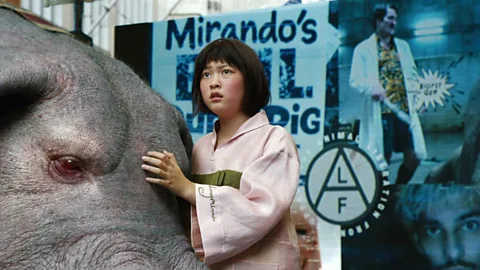 Alamy
AlamyCertainly, Carnage succeeds in being as entertaining as it is powerful. It is set in 2067, an imagined utopian future where the UK is fully vegan. Through a mixture of horrifying real footage of animal farming and fictional dramatic scenes, it shows how humanity gets to this point via a moral reckoning.
In a recurring scene, we see a group of pensioners sit in group therapy and cry and comfort one another. One humiliatingly recollects their former addiction to cheese. “It’s still difficult to say it out loud,” says another, “I ate animals.”
The flipping of norms
At present, while eating meat and animal products is the dominant cultural norm, those who do not do so are labelled vegans. However, Amstell imagines a situation where it is meat-eaters who are the ones with the special label given to them. “We are not vegans,” says activist character Troye King Jones, “they are carnists.” It is a concise and provocative way for Amstell to flip any meat-eating viewers’ long-standing cultural assumptions.
Also released in 2017, Okja is another film that has done its bit in the fight against animal exploitation. Directed by this year’s Oscar-winner, Parasite’s Bong Joon-ho, it tells the story of a little girl called Mija living in the South Korean mountains with her friend and massive animal companion, Okja – a special breed of agriculturally-efficient ‘super pig’ created by a shadowy multinational. However both their lives change when said company arrives to take Okja away. Mija learns Okja is destined for the slaughterhouse, and so she and a group of radical animal rights activists set out on a rescue mission.
In Okja we genuinely care about the ‘super pig’, who cleverly is not quite like any animal in real life. She is not a dog or cat, nor strictly a pig. Rather, Bong has made sure she is free from the cultural associations we have with different species. What that means is that we are able to empathise with her without cultural bias.
At the time of its release, Bong explained how he visited a slaughterhouse while writing Okja, and subsequently went vegan for two months. “It wasn’t necessarily a political or philosophical statement it was just an instinctual, physical reaction to the smell and just the experience I had there.” He has emphasised that turning his audience vegan wasn’t his goal, though he did want to criticise how humans exploit animals in the capitalistic system of mass production – and Jon Ronson, the film’s co-writer, has recounted how many have told him watching the film made them change their eating habits.
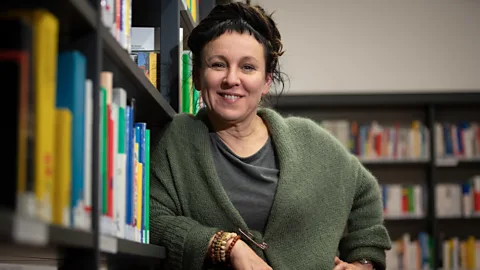 Alamy
AlamyBoth Okja and Carnage use humour and engaging narratives to draw people into redefining their relationships with animals. While they are both provocative, they don’t preach. In both cases, everyone is made fun of a bit. In Okja, that includes both Swinton’s insatiably greedy CEO and The Animal Liberation Front (ALF), who are portrayed like eco-terrorists (albeit well-intentioned ones). In Carnage there is the ‘Bland’ family, who conform to the stereotypical image of bean-eating, life-hating vegans – but then there’s also TV chef Fanny Cradock, whose extravagant meat dishes and explosive personality are weirder than fiction. First these films laugh with us, and then they shake up our preconceived ideas, and address our biases.
Both released in 2017, Carnage and Okja anticipated the vegan boom of the past three years. A report from 2018 showed that a third of Britons had reduced their meat consumption or stopped eating meat altogether, whether for the environment, their health and/or to save animals. More recently, this year an unprecedented 400,000 people signed up for Veganuary, a campaign where pledgers give veganism a try for the month of January.
Facts v fiction
Of course, the extent to which fiction is playing, or will play, a part in this shift is not obviously measurable. Documentaries and non-fiction can have a more immediately tangible impact perhaps. A few years ago, I remember seeing signs outside a number of London coffee shops in which the proprietors said they could no longer justify offering cow’s milk (and would now be offering a plant-based alternative) after having watched Cowspiracy, a 2014 film from Oscar-winning star Joaquin Phoenix, which explored the environmental impact of animal agriculture. Phoenix’s 2017 follow-up What the Health also caused a stir, critiquing the health impacts of the meat and dairy industries. Another more recent film which has made a big impression via Netflix is The Game Changers, a polemic advocating for plant-based diets which in part makes its case by challenging the notion that eating meat is necessary for strength and athleticism.
But fiction can have its own influence, changing hearts and minds in a way that may be less direct but can be just as powerful. Interestingly the documentary Earthlings also drew from poetry, art and literature that controversially compares the treatment of animals with the suffering of victims of racism and sexism.
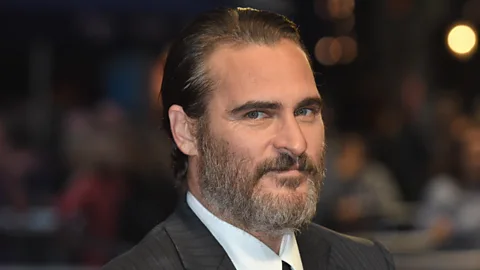 Alamy
AlamyThere have been other vocal non-meat eating novelists – and indeed other Nobel Prize winning ones. The 2003 winner J M Coetzee has written The Lives of Animals, a metafictional novella about animal rights, as well as numerous articles on vegetarianism. Meanwhile vegetarian and feminist Polish author Olga Tokarczuk, who won the Prize in 2018, offered up a strongly anti-carnivorous message in her 2009 novel Drive Your Plow Over the Bones of the Dead, which, in one memorable passage, featured its elderly protagonist Janina cursing the normalisation of exploiting animals: “What sort of a world is this? Someone’s body is made into shoes, into meatballs, sausages, a bedside rug, someone’s bones are boiled to make broth… Shoes, sofas, a shoulder bag made from someone’s belly, keeping warm with someone else’s fur, eating someone’s body, cutting it into bits and frying it in oil… Can it really be true? Is this nightmare really happening?”
In Tender is the Flesh, Bazterrica imagines a terrifying endpoint to our meat obsession. One of the things she is happiest about, she tells me, is that her book is being read in Argentinian schools, even outside the capital. “I think it’s really important for teenagers to start questioning the matrix,” she says. Even in steak-loving Argentina, veganism has grown in recent years – there are now more than four million vegetarians and vegans according to a 2019 study, out of a population of 44.5 million.
The novel has sold in eight languages and the critics have been generally very positive, even as they have been shaken by it. It will be interesting to see how the book will influence a new generations of readers and consumers. Tender is the Flesh is likely to have impact on readers in part because it’s a good example of fiction as “the mind’s flight simulator”. Through reading this novel, we see the full horror of a world where killing and pain are the norm. We are able to experience living in this speculative future, of our own making, where we’ve indulged our desires, but as a result are truly alone. We’ve killed off our animal companions – and we’re literally devouring each other. Marco sits in the ruins of the Buenos Aires zoo, the closest he can get to nature. There are no animals. Only memories. Sometimes we only realise how important something is when it’s too late.
If you would like to comment on this story or anything else you have seen on BBC Culture, head over to our Facebook page or message us on Twitter
And if you liked this story, sign up for the weekly bbc.com features newsletter, called The Essential List. A handpicked selection of stories from BBC Future, Culture, Worklife and Travel, delivered to your inbox every Friday.


Post a Comment